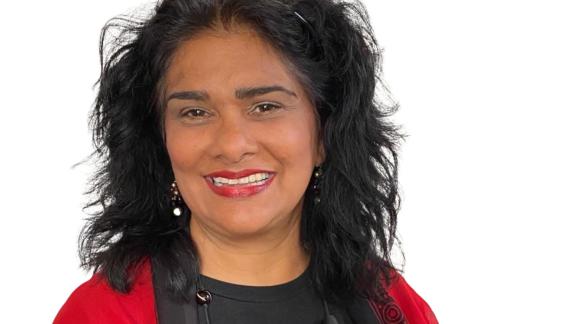What has being a partner in general practice ever done for me?

After facing bias and discrimination as a nurse and an Asian woman, Sheinaz Stansfield is using her role as GP practice manager and PCN Network board member to influence a future that celebrates diversity in health and care delivery models and workforce.
I wasn’t always a successful leader. Without any formal qualifications, I started life in the NHS as a healthcare assistant, working my way up the nursing profession, collecting qualifications at night school, travelling up the B-roads and having little influence to improve patient care as a clinician, I became a manager in commissioning, facing bias and discrimination as a nurse and Asian woman.
Feeling the impact of change fatigue, I sought to leave the NHS in pursuit of an academic career, but soon realised that wasn’t the path for me.
Healthy conflict, not artificial harmony
I detest artificial harmony. Healthy conflict, where all voices are heard so that we may reach the right decisions, where opposition opens the way for innovation, is my aspiration.
After one such discussion, I was invited to apply for a practice manager job at Oxford Terrace and Rawling Road Medical Group (OTRR), being told: “We need someone with complementary skills who will challenge us and be strategically outward looking for our practice”. I took the job for 18 months and 14 years later it is the best career decision I ever made.
This is a secular, democratic, practice with one senior partner, with a distributed compassionate leadership style. I am an equal partner on merit, bringing complementary skills. I feel immersed in an environment that allows the exploration of differences, in a safe and nurturing way, so that we may understand each other better, be more tolerant and celebrate the unique differences we bring. What does this mean to me?
- Diversity is celebrating difference, it's about empowering people by respecting and appreciating what makes them different, in terms of age, gender, ethnicity, religion, disability, sexual orientation, education, and national origin.
- Inclusion embraces these differences, allowing opportunities, listening to and valuing everyone’s contribution.
- Equality is treating everyone the same, and everyone receiving the same benefits.
- Equity bolsters diversity and inclusion by treating people with fairness and justice.
I worry that voices of nurses and non-clinical staff in primary care are unheard. We have no competency, HR frameworks or development programmes to plan careers and grow as individuals. At practice level we are denied this benefit in the fear we may leave. Nationally, we have limited advocacy and therefore, left without a voice. Given that many working in these roles in primary care are women, many from BME groups, without the necessary opportunities and exposure to what good may look like, the bias and discrimination is hidden.
Membership on the PCN Network board gives me a voice, propelling me right into the heart of national policy. Out of my comfort zone is not a place I could have ever expected to find myself.
Being in the room where it happens
I care deeply about general practice, patients and our staff. To influence their welfare and future, I will take every opportunity to peek into the room where it happens.
As an avid fan of Hamilton the Musical, these lyrics from the song The Room Where it Happens come to mind:
‘No one really knows how the parties get to ‘Yes,’
The pieces that are sacrificed in every game of chess,
We just assume that it happens,
But no one else is in the room where it happens.’
I care deeply about general practice, patients and our staff. To influence their welfare and future, I will take every opportunity to peek into the room where it happens. Doors are opening into many rooms. I am welcomed in some where my contribution is valued and listened to, seeing my voice in the ensuing policy documents. Other rooms I am invited into do not fit my personal values and beliefs, but I stay there to learn and influence and so that I may prepare for any future injustice or inequalities that may be visited on those I serve.
Leadership at the ‘top’ of primary care has changed. Hero leader men have been joined by amazing brave women, bringing diversity and a collaborative, inclusive style. These leaders are lambasted by patients for working part time, with portfolio careers to engage in caring duties, whilst on social media they are criticised and challenged by peers. I see them as a buffer between policy and our real world. I dread to think what would rain down on us if they were not the umbrella protecting us. Like them, I feel a duty to stay in the room no matter how unpalatable.
Complementing a range of diverse leaders and thinking, I will use my voice and humbling influence to explore new models enabling the partnership model to flourish
Becoming a practice manager at OTRR gave me a glimpse of what good could look like for a woman of colour defeated by the NHS, both as a patient and manager.
Complementing a range of diverse leaders and thinking, I will use my voice and humbling influence to explore new models enabling the partnership model to flourish, through innovation with equal and equitable access to our diverse communities.
This, I hope, will get us into the room to describe a future that celebrates diversity in delivery model and workforce - enabling equality and equity to build a more sustainable tomorrow for our practices and our people.
Sheinaz Stansfield is managing partner at Oxford Terrace and Rawling Road Medical Group, and director of transformation for Birtley, Oxford Terrace PCN.
You can follow Sheinaz on Twitter @sheinazs



